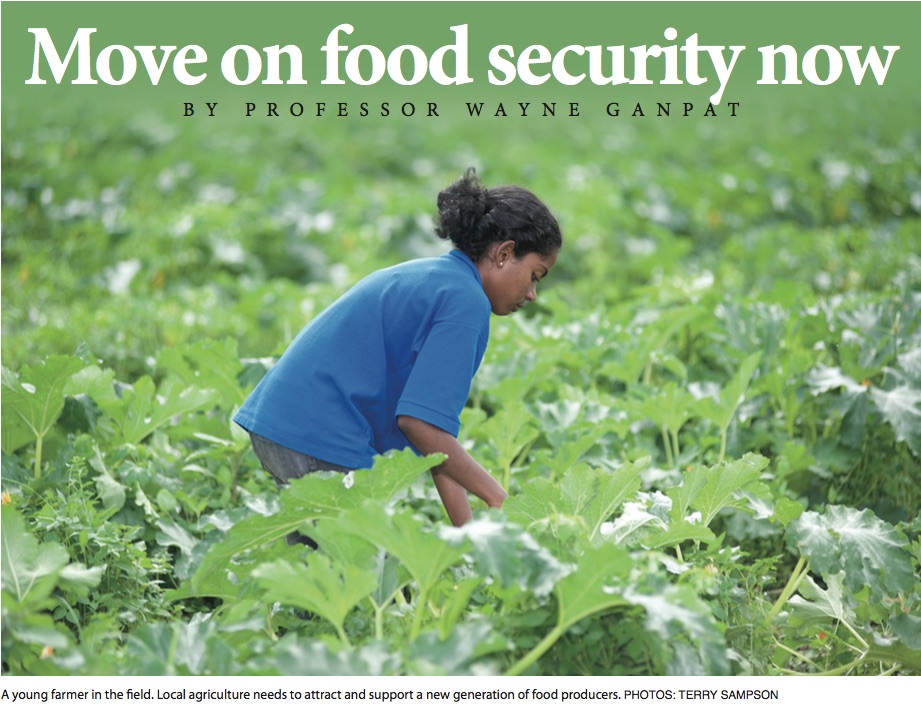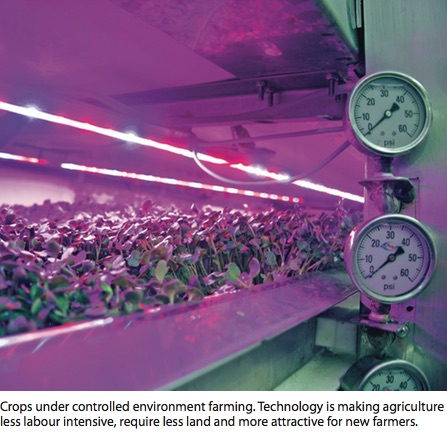
The Caribbean imports most of its food - not just the basics for our survival but also luxury food items.
It is estimated that Trinidad and Tobago currently imports just over 80% of its food, costing around TT$5 billion annually. That is an increase from just about 60% in 2000. Globalisation and free trade allow us to easily import food, including products high in preservatives, loaded with fats and sugar and, in some cases, tins that are near or past their expiration date. We gravitate, unsuspectingly, to foreign products, in part due to marketing, and in part to the thinking that “foreign” means better than local.
This is our opportunity to change our tastes for foreign foods, for the sake of food security and for national health reasons.
Trinidad and Tobago’s food security plan is not generally well-known. Some say we have none. Others say we do not need one. Locally, the food response to COVID-19 has been reassurances of temporary measures – two months of food cover in-country, two months in the supply chain, and two months on order. Panic buying has become prevalent across the region – quickly decimating stocks.I ask: should we focus on how many months of imported food stock we have, or should we have a narrative that speaks to how much food we have on farms, how much in storage, and how many inputs - such as seeds, seedlings and fertilisers - are in country waiting to be utilised? That would have been more comforting to the population, if not to our major food importers.
Food security depends on consistent activities that result in the continuous cultivation of crops and rearing of livestock; sufficient quantities of grain, peas and beans; livestock feed; and frozen value-added products in storage for a few months; plus adequate planting materials. These are the requirements for a steady supply of food.
We must carefully determine the types of food for crisis times. All foods we presently consume cannot be made available. Therefore, these types must be what is needed to keep our bodies nourished and largely based on maintaining a measure of control over our food system. Food sovereignty must be the driving force. It will keep farmers and farm families employed while producing safer and healthier food for the population.
Our farmers in the region can produce small livestock, a range of staples, and a wider range of fruits and vegetables with increased production using a variety of technologies: hydroponics, micro irrigation systems and fertigation methods. Land is no longer a main limiting factor of production with the development and promotion of intensive crop and livestock systems. The need to incentivise farmers is the major limiting factor. Technology is usually costly and both traditional farmers and emerging entrants will need support, entrepreneurs more so. It is critical that the agricultural sector find imaginative ways to encourage them – particularly younger persons – to get into production. The age profile of farmers in the region shows an average age in the mid-fifties which is the vulnerable group for COVID-19. However, young persons will need appropriate incentives and other support mechanisms to engage in food production. In addition, the marketing and transportation systems need a total redirection.
Our local and regional leaders can find support from The UWI to achieve food sovereignty objectives. Many of our staff members are experts in key areas and can offer advice.
The Faculty of Food and Agriculture is the oldest and first faculty (1960) on the St. Augustine Campus – dating back to the establishment of the College of Tropical Agriculture in 1921. It continues to educate well-trained agri-technicians who can ably support our primary producers or enter the sectors as specialised producers.

The launch of an MSc in Value Addition for Food and Nutrition Security in September 2019 was perhaps one of the FFA’s most important initiatives in recent years towards promoting the development of the sector. This programme empowers its students to extend the shelf life of food and to develop innovative products from local foods.
In October 2019, the FFA supported the “Food For Life” initiative and planted 105 breadfruit trees at our farm in Orange Grove. The Faculty recognises that breadfruit has vast potential to sustain us during a crisis and seeks to develop a demonstration model at the farm. Breadfruit has been underutilised in the region even though vast research is available for its production and post-production practices.
Home food production must be a definitive element of national action going forward. In 2018, the FFA added just such a short course for the public. As it is usually well- subscribed, this may be the time for grant funding to allow us to roll out many more of these courses at a subsidised cost and, perhaps, even an online course. Further, it should be made a co-curricular course at The UWI for access by students across all campuses.
Dr Wendy-Ann Isaac leads another forward thinking FFA project- the RDI funded Save Our Seeds project. The project’s main objective is to ensure food and nutrition security for thousands of households in the Caribbean. This will be achieved by improving the diversity of key vegetable food crops, developing, and promoting the growing of crop varieties suited to the changing climate in the region.
Only this year, The Faculty refurbished its Tissue Culture facility and now has the capacity for the rapid multiplication of plants to ramp up production across the region.
If we want food and nutrition security, we must invest heavily in the sector and do so every year until it can sustain itself. Regrettably, the annual budget allocations for agriculture will serve to keep us at subsistence level. We need an enabling policy framework now, one that provides appropriate support and incentives for farmers while revamping approval procedures for access to land, loans, etc, so as to get action on farms. Trinidad and Tobago has a sufficient cadre of experienced farmers, well- trained agriculture graduates, idle lands, and appropriate technologies to get this done. We need leadership that takes advantage of a crisis to emerge better and stronger as a region. Who will take the lead?
The FFA stands ready to support with education, training, and research results.